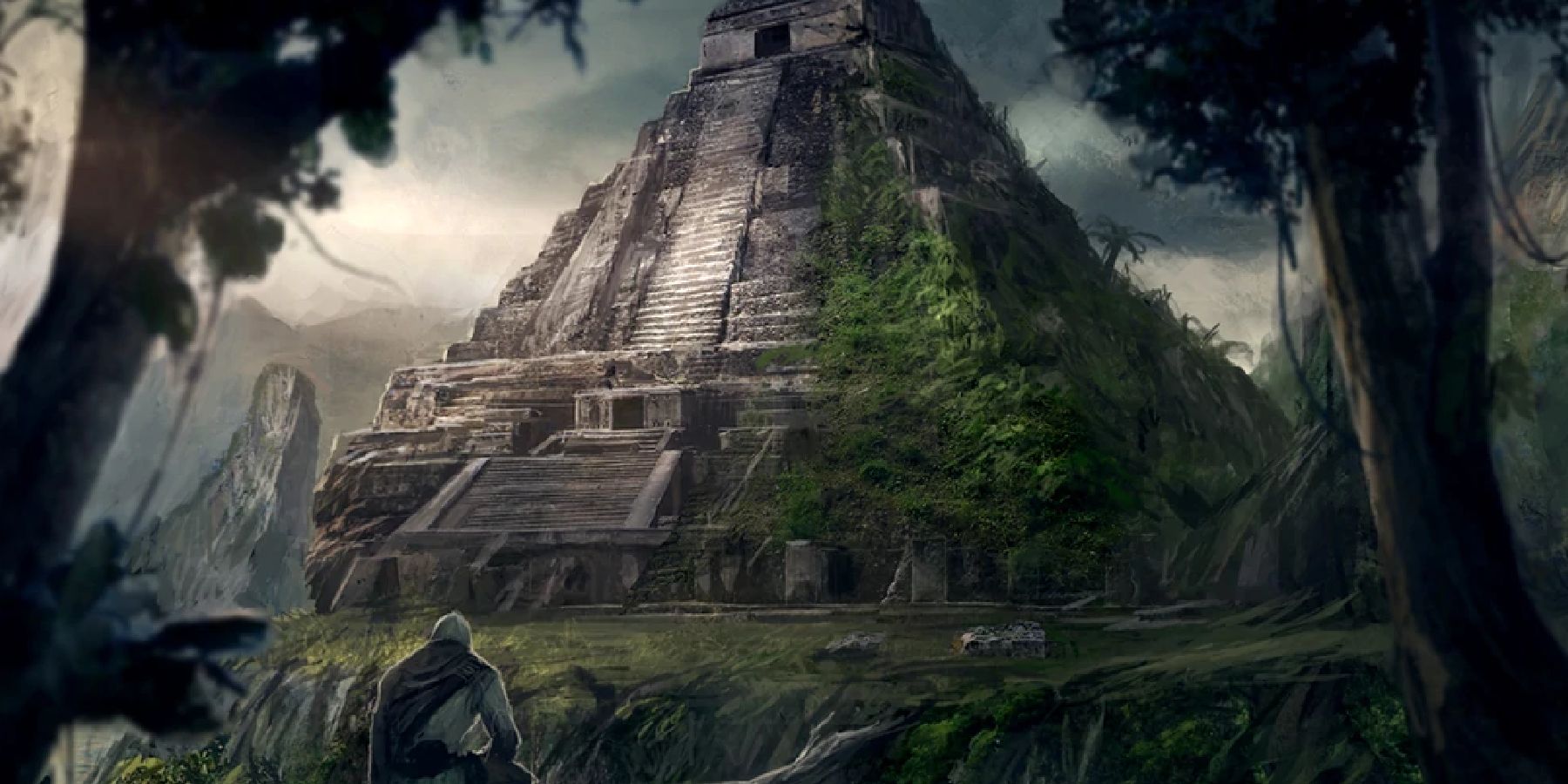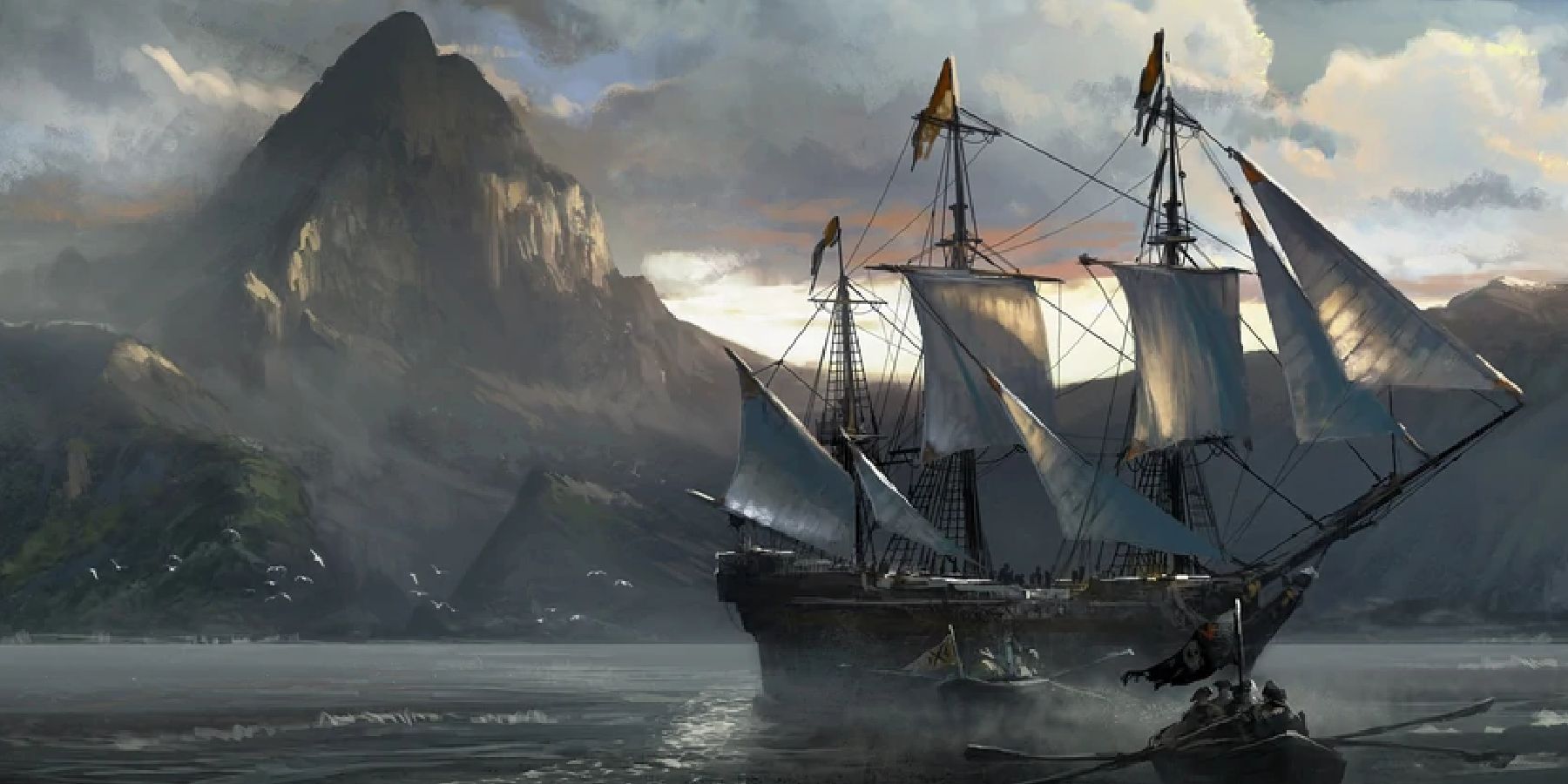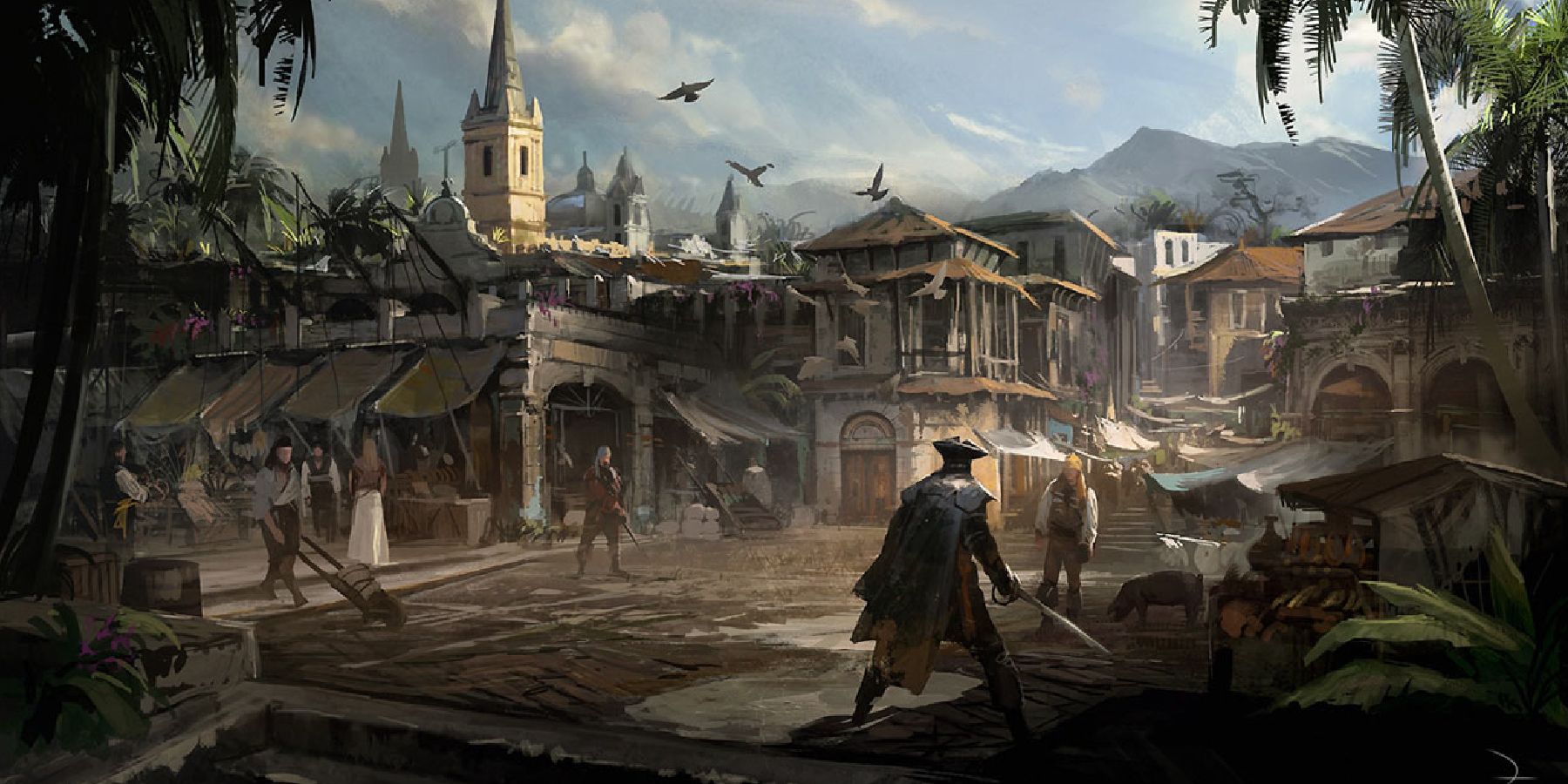Over the past 15 years, the Assassin’s Creed franchise feels like it has been almost everywhere around the world. The series has seen entries starring characters from Egypt, Greece, France, North America, and even India and China in some offshoot games. However, the Assassin’s Creed franchise has turned a blind eye to one part of the world with untapped potential: South America.
Despite Assassin’s Creed’s largely Eurocentric settings and story threads, the franchise does have plenty of lore established for Latin America. It goes back to the Age of Discovery when the Assassins first landed in the Americas and made contact with natives. From here, there are a handful of small stories covering native civilizations that the franchise should explore further in the future. What’s more, South America seems like one of the most important places for the future of the Assassin’s Creed franchise, and could be the staging ground for an Assassin victory in the modern day.
Latin America Has the Potential for Great Assassin’s Creed Stories
Latin America has been referenced in a few mainline entries, namely Assassin’s Creed 3 and Assassin’s Creed 4, but only hint at an overall story about the Assassins and Templars in the Southern Hemisphere. In Assassin’s Creed 3’s Hidden Secrets Pack DLC, Conner finds himself in the Mayan Ruins at Cerros for a brief mission to recover Captain Kidd’s sword deep inside the island’s ruins. However, the DLC never explored the Mayan Empire’s role in Kidd’s wreckage. Meanwhile, Assassin’s Creed 4 would only briefly touch upon the Inca Empire in the Lost Journal DLC, but similarly there's nothing substantial to draw here.
Assassin’s Creed 3 and 4 may have explored small slices of South America’s role in the franchise, but this should be treated as the beginning of something greater. To extract the most out of Latin America’s place in Assassin’s Creed, fans must look at the offshoot media. While Assassin’s Creed Origins explored how the Brotherhood formed in Egypt, South America is where the first Assassin Guilds originated in the Americas. One brief run of an Assassin’s Creed comic book adaptation in 2015 featured the Inca Empire in Peru in the early 1500s, and would be a great starting point for an origin story of the Assassin Brotherhood in South America.
In the Assassin’s Creed: Assassins comic book run, Spanish Assassin Gonzalo Pardo travels to Peru during the Age of Discovery to halt Francisco Pizarro’s conquest of the Inca Empire. However, Gonzalo fails at stopping Pizarro’s assassination of Emperor Atahualpa, and succumbs to depression for years in the aftermath. Eventually, a young Incan woman named Quila discovers a plot to assassinate Emperor Manco Inca Yupanqui and finds herself working with Gonzalo Pardo to stop it. Together, the two thwart Pizarro’s attempted assassination, and Gonzalo offers Quila an opportunity to join the Brotherhood, establishing the Peruvian Brotherhood of Assassins.
Recent mainline entries also hint that South America holds important Pieces of Eden, crucial to the future of the series. After the events of Assassin’s Creed Odyssey and the revelation made by the Staff of Hermes, fans are now aware that a Piece of Eden exists somewhere in Peru near the city of Cusco. By that same account, an Isu artifact is also known to be somewhere in southern Chile. Piecing in lore from the mainline games with the story of Quila and Gonzalo from comics would naturally make for a fascinating take on a future Assassin’s Creed game set in South America.
South America Could Be Important to Assassin’s Creed’s Future
The overarching modern-day plot of Assassin’s Creed sees the Brotherhood in dire straits as Templars have mostly won the war and removed assassins from most major places in the world. A few Assassin cells still exist worldwide, but they are nowhere near the same power and influence they had during the time of Altair in the original Assassin’s Creed. However, South America is home to one of the last Assassin strongholds per recent developments in the Assassin’s Creed timeline.
Brazil played an important role throughout Assassin’s Creed 3, as the Brazilian Brotherhood of Assassins had a branch in Sao Paulo that was tracking a powerful Piece of Eden for use in the Grand Temple. Although the events of that game saw the Assassins in Brazil betrayed by a Templar turncoat, eventually the Brotherhood recovered when Desmond sacrificed himself to stop the events at the end of the Mayan Long Count calendar. Despite modern-day sequences having been toned down in recent entries, this story thread does follow through to the Assassin’s Creed sequels, and could have some big implications for where the series goes next.
Assassin’s Creed Syndicate mentions that the Assassin cells in the area gained dominance over the Templars in Brazil, now outnumbering them for the first time in a long time. That is a massive development for the ongoing struggle between the two factions that could be explored in upcoming games. What's more, an Assassin-dominated country means that the current series protagonist Layla may have an excellent reason to head to South America as a new setting for the Assassin’s Creed games.
South America also features some of the most fleshed-out modern lore. Per Assassin’s Creed Brotherhood, Chile and Argentina were the subjects of Templar puppet governments throughout the 1970s, which would be an interesting Cold War-era setting for the franchise. Much of the real-life social unrest throughout the 60s and 70s in these countries was due to the Templar Order working with Henry Kissinger to organize military coups, or outright ruling Argentina with military juntas. While the franchise seems reluctant to go past the Victorian Era, perhaps the advent of Assassin’s Creed Infinity and various offshoot games coming soon can light a fire for Assassin’s Creed to explore something experimental in this time period.



